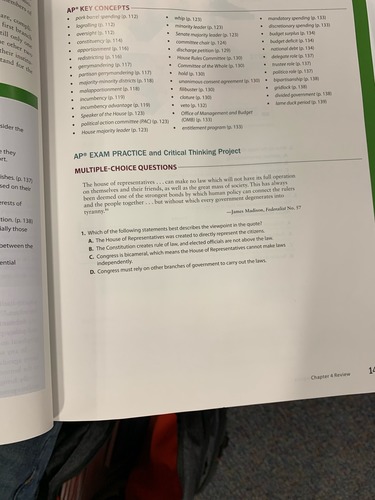Realignment theory contends that
a. parties that adopt a range of ideologically moderate policies designed to capture broad segments of the population are the most successful.
b. a country's party system is less a function of its electoral rules than of its underlying socioeconomic divisions.
c. the fortunes of major political parties remain stable for long periods followed by a dramatic change.
d. FPTP electoral systems generate two-party systems.
e. understanding parties requires considering the ways in which they are similar to and different from businesses, interest groups, and government agencies.
C
You might also like to view...
The reform agenda has hit the nonprofit sector particularly hard because
a. nonprofits suffer from a general impression of being less efficient and more wasteful. b. nonprofits are not accountable to government. c. nonprofits have clear guidelines for what constitutes a "good" nonprofit. d. nonprofits need not be concerned with sound management practices.
An example of a government policy that promotes social equality without redistributing income is
a. the U.S. Congress changing the process of financial aid determination. b. the U.S. Congress raising the minimum wage. c. the U.S. Congress increasing defense spending. d. the U.S Supreme Court holding that state laws banning same-sex marriage were unconstitutional. e. the U.S. Congress redefining the welfare eligibility cut-off income.
Which of the following statements best describes a view point in the quote?
What will be an ideal response?

Interest groups are an example of
a. collective action problems b. parastatals c. civil society d. social movements